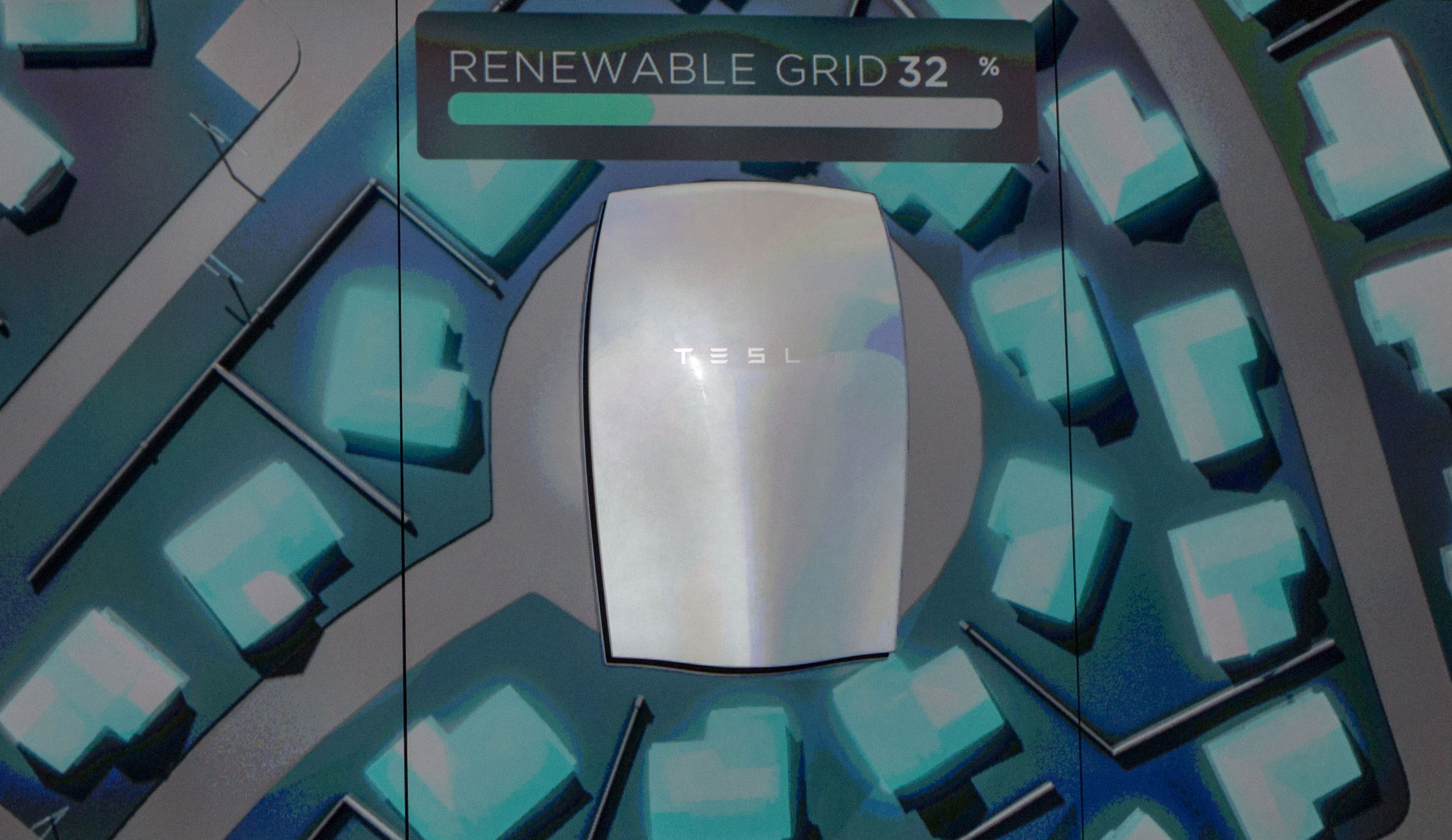Tesla's new power play
Everything you need to know, in four paragraphs

A free daily email with the biggest news stories of the day – and the best features from TheWeek.com
You are now subscribed
Your newsletter sign-up was successful
Everything you need to know, in four paragraphs:
Elon Musk "wants to sell you a battery," said Alex Davies at Wired. Only this time, it's not inside one of his luxury electric Tesla cars. Last week, the billionaire businessman unveiled a line of lithium-ion batteries designed to power homes, businesses, and even public utilities. Dubbed Powerwalls, the rechargeable batteries are essentially upgraded versions of those found in Tesla vehicles, reconfigured to allow consumers and businesses to store large amounts of energy — and "even go off the grid."
The "size and thickness of a home-refrigerator door" and bolted to the side of a house, the Powerwall system offers homeowners three main advantages, said Jerry Hirsch in the Los Angeles Times. It can absorb and store power from the electrical grid at night, when electricity is cheapest, then power the house during the day, when "rates are highest." Homeowners with solar panels can charge up Powerwall units during daylight hours, then use that energy at night or store it for cloudy days, reducing or even eliminating their reliance on the grid. And finally, the battery can be used as a backup during power outages.
The Week
Escape your echo chamber. Get the facts behind the news, plus analysis from multiple perspectives.

Sign up for The Week's Free Newsletters
From our morning news briefing to a weekly Good News Newsletter, get the best of The Week delivered directly to your inbox.
From our morning news briefing to a weekly Good News Newsletter, get the best of The Week delivered directly to your inbox.
Musk hopes the Powerwall will usher in a future of off-the-grid homes, but in reality, it "won't replace your local utility anytime soon," said John Licata at MSN. For starters, it's expensive: The 10 kilowatt-per-hour version will sell for $3,500; a 7 kilowatt-per-hour version will sell for $3,000. And those figures don't include the cost of installation or the inverter necessary to make the system work, which will likely add thousands of dollars to the cost. Plus, the typical American home can't run for very long on one of these batteries, said Jose Pagliery at CNN. The average U.S. household uses 31 kilowatt hours of energy a day; the largest Powerwall provides just one third of that. At peak usage times, the battery might be able to supply a home's energy needs for about five hours, making it "difficult to totally unplug from the grid," even with solar panels.
Powerwall probably makes sense for people in Hawaii, California, Arizona, and "other Sun Belt states," where power costs tend to be high and sunshine is plentiful, said Vikas Bajaj at The New York Times. But ultimately, the batteries might prove most useful for the utility companies themselves. Utilities need better options for storing unused power, especially when it comes from intermittent sources like solar and wind. Tesla's industrial-size, 100-kilowatt Powerpack model could be used to help utilities better balance the peaks and valleys of supply and demand, and ultimately make grids cleaner and more efficient. Tesla is clearly "taking aim at these bigger customers," said Adam Pasick at Quartz. Musk has called the bigger Powerpacks "infinitely scalable" and has partnered with companies such as Amazon, Target, and Walmart, as well as utilities like Southern California Edison, to create massive battery storage systems for businesses and towns. Musk noted last week that "all we need" is 2 billion Powerpacks to fulfill all of the world's transport, electricity, and heating needs. If that sounds grandiose, it is. But "grandiose ambitions have always been part of the Tesla pitch."
A free daily email with the biggest news stories of the day – and the best features from TheWeek.com
-
 The pros and cons of noncompete agreements
The pros and cons of noncompete agreementsThe Explainer The FTC wants to ban companies from binding their employees with noncompete agreements. Who would this benefit, and who would it hurt?
-
 What experts are saying about the economy's surprise contraction
What experts are saying about the economy's surprise contractionThe Explainer The sharpest opinions on the debate from around the web
-
 The death of cities was greatly exaggerated
The death of cities was greatly exaggeratedThe Explainer Why the pandemic predictions about urban flight were wrong
-
 The housing crisis is here
The housing crisis is hereThe Explainer As the pandemic takes its toll, renters face eviction even as buyers are bidding higher
-
 How to be an ally to marginalized coworkers
How to be an ally to marginalized coworkersThe Explainer Show up for your colleagues by showing that you see them and their struggles
-
 What the stock market knows
What the stock market knowsThe Explainer Publicly traded companies are going to wallop small businesses
-
 Can the government save small businesses?
Can the government save small businesses?The Explainer Many are fighting for a fair share of the coronavirus rescue package
-
 How the oil crash could turn into a much bigger economic shock
How the oil crash could turn into a much bigger economic shockThe Explainer This could be a huge problem for the entire economy


